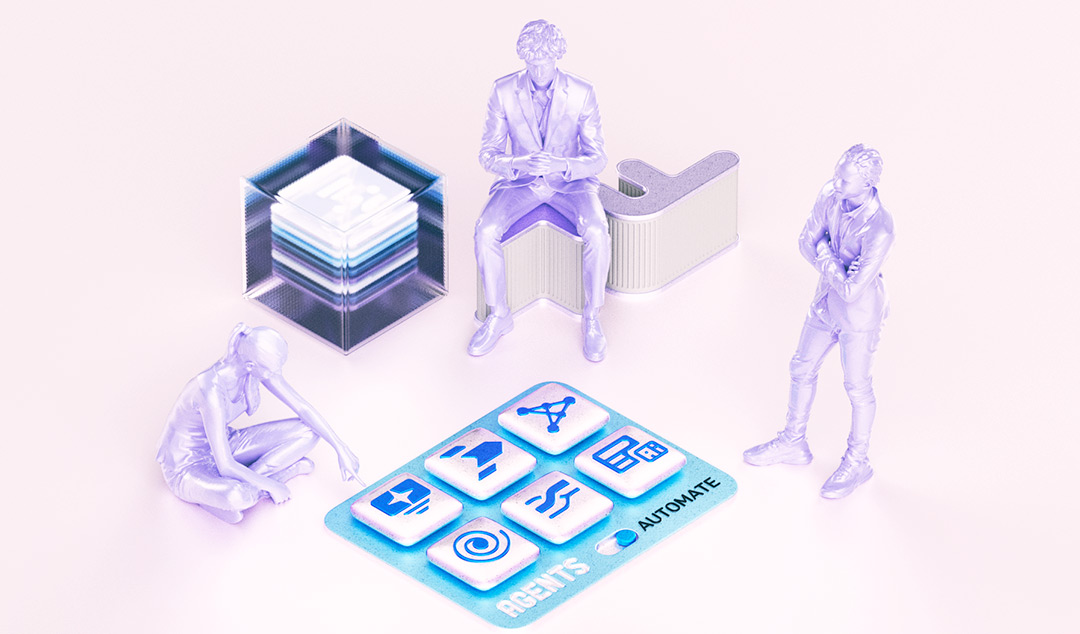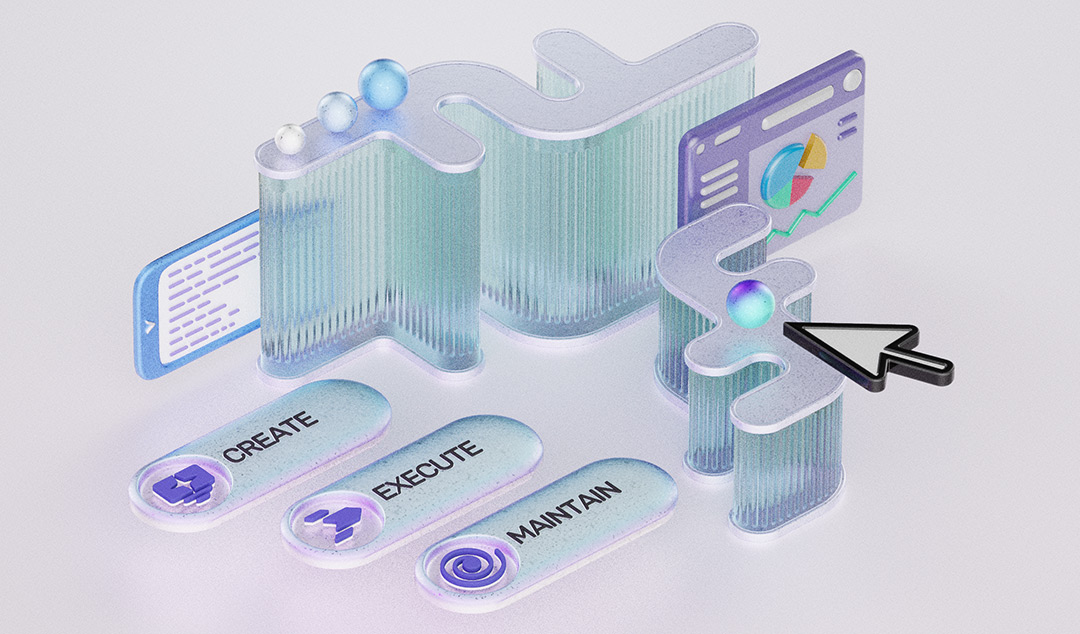The Customer Success Blueprint for AI Testing Initiatives
Accelerate your AI testing initiative. This blueprint outlines the 3-phase customer success framework to achieve 90% test automation, 5x productivity gains, and $10M+ annual cost savings. Navigate organizational change & maximize ROI.

Enterprise AI testing transformation represents more than a technology upgrade, it's a fundamental shift that requires strategic orchestration, dedicated support, and comprehensive change management.
Organizations investing in AI-powered testing platforms like autonomous testing solutions need structured guidance to navigate this complex journey and realize the full potential of 80-90% autonomous quality assurance operations.
The stakes are significant. Functionize customers implementing AI testing initiatives report productivity gains of 5x to 10x, cost reductions exceeding $10 million annually, and test automation coverage reaching 90%. However, achieving these outcomes requires more than deploying new technology. Success depends on having the right customer success framework, support ecosystem, and transformation methodology in place.
This comprehensive blueprint outlines the essential elements for building customer success programs that drive AI testing adoption, accelerate time-to-value, and ensure sustainable organizational transformation. From structured implementation phases to success metrics and common challenge mitigation, this guide provides the strategic framework enterprise leaders need to maximize their AI testing investments.
Why AI Testing Transformation Requires Dedicated Support
AI testing transformation fundamentally differs from traditional software implementations. Organizations must shift from selector-based testing approaches which require a heavy load of maintenance to be successful to autonomous systems that create, adapt, self-diagnose, and self-maintain. This transition requires customers to reimagine their entire quality assurance function, not simply adopt new tools.
The complexity extends beyond technical implementation. Teams need to understand what complete transformation looks like, what organizational changes enable success, and how to navigate the cultural shift from engineering-heavy QA burdens to product-centric, autonomous operations. Without dedicated customer success support, organizations struggle to see beyond their current pain points to understand the revolutionary possibilities.
Successful AI testing adoption requires clear articulation of the transformation path, expected efficiency gains, and specific organizational changes needed at each stage. Customer success teams become strategic partners, helping organizations understand what teams they'll need, what processes will change, and what results they can expect throughout their journey.
The Complexity of Organizational Change Management
Enterprise AI testing initiatives face unique organizational challenges that traditional change management approaches don't address. Legacy test automation engineers often struggle to adopt AI-powered platforms that eliminate manual test maintenance efforts because it requires a brand-new way of approaching test automation.
Additionally, misaligned incentives with global system integrators who benefit from large manual testing teams can create implementation roadblocks; this often requires customer success teams to navigate complex stakeholder dynamics.
The transformation story must address both technical capabilities and organizational change management, helping customers understand exactly what their journey will look like, what efficiency gains they can expect at each stage, and how to manage the transition effectively.
The AI Testing Journey Framework
Successful AI testing transformation follows a structured three-phase approach that balances technical implementation with organizational change management. Each phase builds upon the previous one, ensuring sustainable adoption and measurable progress toward autonomous quality assurance operations.
Phase 1: Assessment and Planning (0-30 days)
The foundation phase focuses on establishing clear baselines, setting realistic expectations, and preparing the organization for transformation. Customer success managers conduct comprehensive current state evaluations, documenting existing testing processes, tool landscapes, and team capabilities.
Current State Evaluation
Teams assess current testing velocity, coverage gaps, maintenance overhead, and resource allocation patterns. This baseline measurement becomes critical for demonstrating ROI and tracking transformation progress. Organizations typically discover that manual testing consumes 60-80% of QA resources while providing limited coverage of critical application functionality.
Goal Setting and Success Metrics
Customer success teams work with stakeholders to establish specific, measurable objectives aligned with business outcomes. Common goals include reducing test creation time from weeks to days, achieving 90% automation coverage, and eliminating manual maintenance overhead. These metrics provide clear targets for measuring transformation success.
Resource Allocation and Team Preparation
The planning phase identifies required skill sets, training needs, and organizational changes necessary for AI testing adoption. This preparation prevents implementation delays and ensures teams are ready to leverage autonomous testing capabilities.
Phase 2: Implementation and Onboarding (30-90 days)
The implementation phase focuses on deploying AI testing platforms, migrating existing tests, and building team capabilities. Customer success managers provide hands-on support to ensure technical deployment success while addressing organizational resistance and skill gaps.
Platform Deployment and Configuration
Technical deployment involves integrating AI testing platforms with existing CI/CD pipelines, test management systems, and application environments. Customer success teams ensure seamless integration with tools like Jenkins, GitLab, GitHub Actions, Azure DevOps, Jira, TestRail, and alerting systems. This integration prevents workflow disruption and accelerates adoption.
Initial Test Migration and Creation
Teams begin migrating high-value test cases to AI-powered platforms while creating new autonomous tests for critical application flows. Customer success managers guide prioritization decisions, helping organizations focus on tests that provide maximum impact and ROI. Early wins demonstrate platform value and build organizational confidence.
Team Training and Skill Development
Comprehensive training programs address both technical platform capabilities and new working methodologies. Teams learn to leverage AI-powered test creation, natural language test documentation, and autonomous maintenance features. Training emphasizes the shift from script maintenance to test strategy and quality analysis.
Phase 3: Optimization and Scaling (90+ days)
The optimization phase focuses on maximizing platform value, expanding coverage, and achieving autonomous quality assurance at scale. Customer success teams help organizations fine-tune their implementations and realize the full potential of AI testing transformation.

Performance Tuning and Optimization
Teams optimize test execution performance, refine AI model accuracy, and improve integration efficiency. Customer success managers analyze usage patterns and recommend configuration adjustments that maximize platform value. Organizations typically see continued improvement in test reliability and execution speed during this phase.
Advanced Feature Utilization
Organizations begin leveraging advanced platform capabilities such as intelligent test generation, simplified data management, and predictive quality analytics. These features enable truly autonomous testing operations that require minimal human intervention.
Organization-wide Rollout
Successful pilot implementations expand across the organization, with customer success teams providing scaling guidance and change management support. This expansion requires careful coordination to ensure consistent adoption patterns and maintain transformation momentum.
Customer Success Team Structure
Effective AI testing customer success requires specialized team structures that combine technical expertise with change management capabilities. The most successful programs deploy dedicated success managers supported by comprehensive ecosystems that address every aspect of the transformation journey.
Dedicated Success Managers
Customer success managers specializing in AI testing transformation possess unique skill combinations that traditional software support roles don't provide. These professionals understand both the technical complexities of autonomous testing platforms and the organizational dynamics required for successful adoption.
Technical Expertise in AI Testing
Success managers maintain deep understanding of AI testing platforms, including machine learning model training, natural language processing capabilities, and autonomous test generation. They can troubleshoot complex technical issues while helping customers optimize platform configurations for maximum value.

Industry Knowledge and Best Practices
Experienced success managers bring cross-customer insights that accelerate implementation timelines and prevent common pitfalls. They understand industry-specific testing challenges and can recommend proven approaches that work across similar organizations.
Change Management Experience
AI testing transformation requires sophisticated change management that addresses both technical adoption and cultural resistance. Success managers skilled in organizational psychology help teams navigate the transition from manual to autonomous testing approaches.
Support Ecosystem
Beyond dedicated success managers, comprehensive support ecosystems provide the resources, training, and community connections that ensure long-term transformation success.
Technical Support and Troubleshooting
24/7 technical support ensures that implementation challenges don't derail transformation momentum. Support teams with deep AI testing expertise can resolve complex issues quickly while providing educational guidance that builds customer capabilities.
Training and Certification Programs
Structured training programs address different skill levels and role requirements within customer organizations. From executive briefings to hands-on technical training, comprehensive education ensures all stakeholders understand their role in the transformation journey.
Community Forums and Knowledge Sharing
Customer communities facilitate peer-to-peer learning and best practice sharing. Organizations like GE Healthcare, Norstella, and McAfee share implementation experiences that help other customers accelerate their transformations and avoid common challenges.
Success Metrics and KPI Tracking
Measuring AI testing transformation success requires comprehensive metrics that track both technical improvements and business outcomes. The most effective customer success programs establish baseline measurements, set realistic targets, and provide ongoing visibility into transformation progress.
Velocity Improvements
Speed metrics demonstrate the immediate impact of AI testing adoption on development and release processes. These measurements provide compelling ROI justification and help organizations understand the business value of their investments.
Test Creation and Execution Speed
Organizations typically see dramatic improvements in test creation velocity, with examples like GE Healthcare creating 240 automated tests in three days compared to 22 days using traditional approaches. Customer success teams track these improvements to demonstrate platform value and identify optimization opportunities.
Release Cycle Acceleration
AI testing platforms enable faster release cycles by eliminating manual testing bottlenecks and reducing maintenance overhead. Teams can deploy more frequently with greater confidence, directly impacting time-to-market for new features and capabilities.
Time-to-Market Reduction
Comprehensive velocity improvements combine to reduce overall time-to-market by 60% or more. This metric directly correlates to business value and competitive advantage, making it a critical success indicator for enterprise leaders.
Quality Enhancements
Quality metrics demonstrate how AI testing transformation improves software reliability and user experience. These measurements address executive concerns about risk management and brand reputation protection.
Defect Detection Rates
AI-powered testing typically improves defect detection through more comprehensive coverage and intelligent test case generation. Customer success teams track detection rate improvements to demonstrate quality enhancements and risk reduction.
Test Coverage Improvements
Autonomous testing platforms achieve coverage levels that manual approaches cannot sustain. Organizations regularly reach 90% automation coverage, with AI handling the creation and maintenance of comprehensive test suites.
Production Incident Reduction
Improved testing quality directly correlates to fewer production incidents and reduced customer impact. This metric provides clear business value demonstration and risk management justification for AI testing investments.
Efficiency Gains
Efficiency metrics quantify resource optimization and cost reduction achievements that justify AI testing platform investments. These measurements address executive priorities around cost management and resource allocation.
Resource Utilization Optimization
AI testing platforms enable dramatic improvements in resource utilization by eliminating manual maintenance overhead and accelerating test creation processes. Teams can redirect effort from script maintenance to strategic quality analysis and innovation.
Cost Reduction Achievements
Organizations typically achieve cost reductions exceeding $10 million annually through AI testing transformation. Customer success teams track these savings to demonstrate ROI and justify continued platform investment.
Team Productivity Increases
Productivity improvements of 5x to 10x are common with AI testing platforms, enabling teams to accomplish significantly more with existing resources. These gains allow organizations to support more applications and faster development cycles without proportional team growth.
Common Implementation Challenges
Understanding and addressing common implementation challenges prevents transformation delays and ensures sustainable adoption. Customer success teams that proactively address these issues achieve better outcomes and higher customer satisfaction.
Technical Hurdles
Technical challenges require specialized expertise and proven methodologies to resolve effectively. Customer success teams with deep platform knowledge can guide organizations through complex integration and optimization scenarios.
Integration Complexity
Enterprise environments often involve complex tool chains and legacy systems that create integration challenges. Success managers help customers navigate these complexities while maintaining existing workflow efficiency.
Legacy System Compatibility
Older applications may require special consideration for AI testing implementation. Customer success teams provide guidance on handling legacy compatibility while maximizing platform value for











